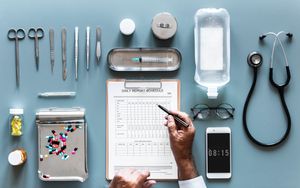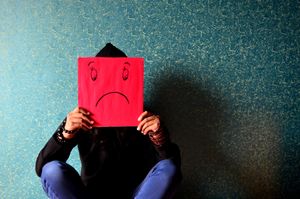
Since adolescents are often moody, it can be difficult to recognize when their son or daughter has become depressed and might need help. The thing people tend to notice first is withdrawal, or when the teenager stops doing things she usually likes to do. There might be other changes in her mood, including sadness or irritability. Or in her behavior, including, appetite, energy level, sleep patterns, and academic performance. If several of these symptoms are present, be vigilant about the possibility of teen depression.
This is especially important because, by the time family members and other people around a teenager note her lack of interest in most things, or what we call anhedonia, she’s usually been depressed for some time. Depression is an internalizing disorder, i.e. one that disturbs a patient’s emotional life, rather than an externalizing one, which takes the form of disruptive or problematic behavior. As such, it takes a while not only for others to recognize it but often for the patient herself to realize that her thinking, and emotional responses, are disturbed.
Note that there are actually two kinds of depression. In major depressive disorder —the most familiar form of depression—the symptoms occur in what may be severe episodes that tend to last from seven to nine months. But there is also another form of depression called dysthymia, in which the symptoms are milder, but they last longer, even years. So while the experience of dysthymia may be less debilitating for the child at any given moment, the risk is that there is more accrued damage, more time in which the child is kept out of the healthy development process.
Why early intervention is critical
 When a teenager is depressed, his suffering isn’t the only reason it’s important to get help. In addition to the disorder itself, there are add-on effects that may cause lifelong issues. With depression, symptoms come to include low energy and poor concentration, two factors that are likely to have a significant impact on social and academic functioning.
When a teenager is depressed, his suffering isn’t the only reason it’s important to get help. In addition to the disorder itself, there are add-on effects that may cause lifelong issues. With depression, symptoms come to include low energy and poor concentration, two factors that are likely to have a significant impact on social and academic functioning.
It’s easy to see the effects of poor academic functioning: falling behind in school undermines a child’s confidence and self-image, and can impact his future if it’s prolonged. But social learning is just as critical as academic learning in adolescence. Deficits in social skills not only put depressed teens behind their peers but in themselves can compound their depression.
Teen Depression and Addiction
For both teens and adults, drug addiction and depression are a common and dangerous combination. Depression can arise from a blend of biological, genetic, psychological and environmental factors. Addiction has similar roots, so it’s unsurprising that the two frequently co-occur.
 Adolescence is a time of change for teens. Like their bodies, home lives, and even brain chemistries change, teens may have a hard time coping. Parental guidance is crucial during this period. Without it, a common case of the adolescent “blues” can develop into teen depression and possible drug abuse. Many teens turn to alcohol or drugs to self-medicate for depression.
Adolescence is a time of change for teens. Like their bodies, home lives, and even brain chemistries change, teens may have a hard time coping. Parental guidance is crucial during this period. Without it, a common case of the adolescent “blues” can develop into teen depression and possible drug abuse. Many teens turn to alcohol or drugs to self-medicate for depression.
Teens suffering from depression often appear sad or anxious, but that’s not always the case. Depressed teens might also lash out angrily at loved ones over seemingly insignificant things. Parents might feel unsure about whether their child is just “acting out” or suffering from depression. If a teen’s behavior drastically changes during adolescence, leading to self-harm, violence or drug abuse, they might be struggling with depression.
According to Bay Area medical drug and alcohol detox center, Bright Future Recovery, common symptoms of teen depression include:
- Continuous anxious or “empty” mood
- Irritability
- Feelings of helplessness
- Fatigue
- Difficulty sleeping
- Appetite and/or weight changes
- Difficulty concentrating
- Body aches and pains
Teen Anxiety and Addiction
Feeling anxious or scared is part of growing up. When nervousness and fear start interfering with a teen’s daily life, however, an anxiety disorder might be forming.
 Generalized anxiety disorders rarely develop before adolescence. On the surface, anxiety disorders can look like normal teenage growing pains. Teens suffering from anxiety disorders, however, will feel incapable of functioning due to worry. They will avoid school, work and activities they used to enjoy like socializing with friends.
Generalized anxiety disorders rarely develop before adolescence. On the surface, anxiety disorders can look like normal teenage growing pains. Teens suffering from anxiety disorders, however, will feel incapable of functioning due to worry. They will avoid school, work and activities they used to enjoy like socializing with friends.
Many teens will turn to central nervous system (CNS) depressants like alcohol to calm hyperactive brain activity that leads to anxiety disorders. But this relief is only temporary. Over time teens become dependent on the substance to feel “normal,” which can quickly lead to addiction.
Treating Teen Addiction and Co-Occurring Disorders
Some addiction rehabs may not treat underlying mood disorders. Additionally, mental health counseling might not treat co-occurring drug abuse. To keep teens with co-occurring disorders from falling between the cracks, it’s important to treat both disorders at once.
Teens diagnosed with co-occurring disorders typically aren’t successful in traditional addiction treatment programs. Treatment approaches like the 12-step recovery model may be too confrontational for teens with a dual diagnosis. The stress these teens suffer in such programs can be counterproductive to addiction recovery.
Treatment programs that build positive social connections are often effective. Recovery groups designed specifically for teens play an important role in providing emotional support. Teaching teens new skills to cope with negative feelings helps treat mental illness and drug addiction. Learn more about teen treatment programs and techniques.
Find Help for Your Teen Today

Identifying a problem is only the first step toward your teen’s long-term health. The next step is to find a drug treatment and recovery program. Drug abuse and addiction are difficult to treat on its own, let alone alongside a mental health disorder. Inpatient and outpatient treatment centers offer programs designed to help teens overcome both obstacles.
Contact a recovery professional for more information about your teen’s treatment options today.